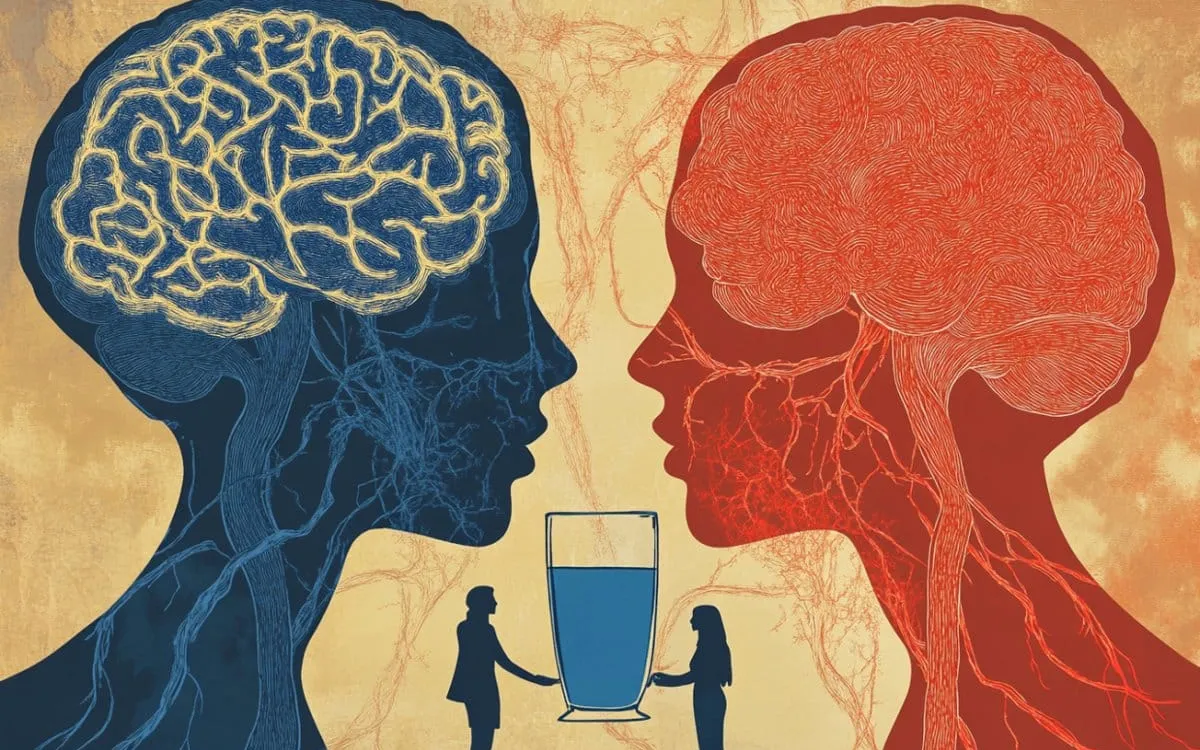
Consuming eight or more alcoholic drinks per week has been linked to an increased risk of developing brain lesions known as hyaline arteriolosclerosis. These lesions are indicative of brain injury and are associated with significant impairments in memory and cognitive function. A recent study published on April 9, 2025, in the journal Neurology, underscores the serious implications of heavy alcohol consumption on brain health.
Hyaline arteriolosclerosis is a condition characterized by the thickening and stiffening of small blood vessels in the brain. This vascular damage restricts blood flow, leading to potential long-term harm to brain tissue. The study highlights that while there is a clear association between heavy drinking and brain injuries, it does not definitively establish causation.
According to study author Dr. Alberto Fernando Oliveira Justo from the University of Sao Paulo Medical School, “Heavy alcohol consumption is a major global health concern linked to increased health problems and death.” This research aims to shed light on how alcohol affects cognitive abilities as individuals age, revealing that heavy drinking can indeed lead to detrimental effects on the brain.
The study involved a comprehensive examination of 1,781 individuals with an average age of 75 at the time of death. Each participant underwent a brain autopsy to assess for signs of brain injury, including tau tangles and hyaline arteriolosclerosis. Family members provided detailed accounts of the participants’ alcohol consumption habits, allowing researchers to categorize them into four distinct groups:
Non-drinkers: 965 individuals Moderate drinkers: 319 individuals (seven or fewer drinks per week) Heavy drinkers: 129 individuals (eight or more drinks per week) Former heavy drinkers: 368 individualsEach alcoholic drink was defined as containing 14 grams of alcohol, equivalent to approximately 350 milliliters of beer, 150 milliliters of wine, or 45 milliliters of distilled spirits. The results revealed alarming statistics regarding the prevalence of vascular brain lesions:
40% of non-drinkers had vascular brain lesions. 45% of moderate drinkers had vascular brain lesions. 44% of heavy drinkers had vascular brain lesions. 50% of former heavy drinkers had vascular brain lesions.Upon adjusting for factors such as age, smoking, and physical activity, heavy drinkers exhibited a staggering 133% higher likelihood of having vascular brain lesions compared to non-drinkers. Additionally, former heavy drinkers showed an 89% increase in odds, while moderate drinkers had a 60% higher likelihood. The study also found that heavy and former heavy drinkers had increased odds of developing tau tangles, with odds of 41% and 31% respectively.
Furthermore, former heavy drinkers experienced a notable reduction in brain mass ratio and demonstrated poorer cognitive performance. Interestingly, no significant correlation was identified between moderate or heavy drinking and cognitive abilities or brain mass ratio.
The findings also revealed a concerning trend regarding lifespan. The study noted that heavy drinkers died, on average, 13 years earlier than those who abstained from alcohol. Dr. Justo emphasized, “We found heavy drinking is directly linked to signs of injury in the brain, which can lead to long-term effects on brain health, impacting memory and thinking abilities.” This highlights the critical need for public health initiatives aimed at reducing heavy drinking.
While the study provides valuable insights into the relationship between heavy alcohol consumption and brain health, it also acknowledges limitations. It did not track participants before death and lacked data on the duration of alcohol consumption and cognitive abilities. Continued research in this area is essential to further understand these associations and to develop effective preventive strategies.
This important research was supported by The São Paulo Research Foundation and aims to inform public health policies regarding alcohol consumption and its effects on cognitive health.